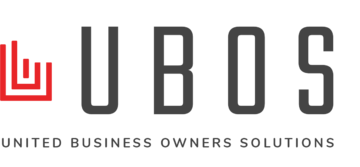Tax Saving Strategies for High Income Earners
It is normal to pay a higher percentage of taxes than average earners when you earn a high income. Generally, people who earn more, pay more, although there are exceptional cases. You might think you have no choice if you’re a high income earners, and are already planning on resigning to stop bearing a high tax burden; you have nothing to worry about.
The good news is that with a merger of tax deductions and contribution strategies, tax credits, you can reduce your tax bill by narrowing your taxable income!
And we have got you covered because listed below are a few tax saving strategies for high-income earners like yourself.
1. Culminating your retirement benefits
Accounts that allow you to lower your taxable income easily are employer-based accounts such as 401(k) and 403(b). The reason is that every dollar you put into these accounts is not taxed until you withdraw the money from your account and that in turn reduces your tax burden each year.
The catch here is that your income will be lower if you wait until you have retired to take out money from your 401(k) because you will no longer be drawing a salary. The benefit is that you will be in a lower tax bracket, which implies that the amount you withdraw will be taxed at a much lesser rate than it would’ve been if you’d had to pay taxes when you earned it.
By contributing the maximum amount, you can take advantage of the tax-reducing benefits of retirement accounts. For 2020, the maximum 401(k) and 403(b) contributions are $19,500, while the maximum contribution for SIMPLE IRAs is $13,500. If you are over the age of 50, then you may take advantage of catch-up contributions of up to $6,000 as well.
2. Depend on a health savings account
To save on your taxes you may choose to contribute some income to a Health Savings Account (HSA). Although you may contribute only if you have selected a high-deductible insurance plan. The maximum contributions for 2020 are $3,550 for individuals and $7,100 for families.
If you are 55 yrs of age or older, you may contribute an additional $1,000. Even though cost increases for medical expenses routinely outpace inflation every year, HSA contribution limits are linked to inflation.
Unlike money, you contribute to a Flexible Spending Account keeping in mind that the money in your Health Savings Account is yours forever. That is why, you may want to consider an HSA, you’ll need to asses the risks of having a higher deductible against your prospective savings.
3. Selling inherited real estate
You may not realize that you can reserve money on property taxes by selling the real estate swiftly if you’ve inherited a real estate from a parent or someone else. The reason is as follows:
For instance, if your parents bought a home for $200,000 and it is now worth $900,000. They would’ve paid capital gains on $700,000 if they had sold it while they were alive. And on the other hand, if you hold onto the house, you will have a stepped-up tax basis of $900,000 and will be required to pay property taxes on that amount, thus significantly limiting your potential gain from the sale.
The solution is to sell the home quickly after you inherit it, thus saving money on property taxes and maximizing your inheritance. Another quick tip would be to keep in mind that you can avoid capital gains tax by transferring the income from the sale into another real estate investment within 180 days.
4. Roth IRA conversions
These are tax-free retirement accounts that can help you to reduce your tax burden and save money on your taxes, even if you are in one of the top brackets. Roth IRA subsidy are made from post-tax income, unlike a traditional IRA. This means you will pay taxes before you contribute, but not when you withdraw. Any income earned on the money in your Roth IRA is also tax-free. You can also roll over the money in a traditional IRA or a 401(k) into a Roth IRA and gain the same benefits.
When you’ve had a year with less earnings than the last year, or when you’ve retired and are momentarily in a lower tax bracket, would be some of the perfect times to do a Roth IRA conversion. If you can hold back until the age of 70 and half to make mandatory withdrawals, this strategy makes sense. This option is easy to overlook, especially when people are focused on tax deductions as a way of reducing their taxable income.
5. Buying Municipal Bonds
This might not be the most glamorous investment, but we often recommend tax-exempt bonds to our clients who are high income earners. You give money to the issuer in exchange for set interest payments over the period of the bond when you buy a municipal bond. Towards the end of the period, the bond is mature, and the original investment is returned to the buyer.
Generally, the income from tax-exempt bonds is exempt from all income taxes, including local, state and federal taxes. Even the interest payments from the earning may be exempted from taxes.
It is obvious that municipal bonds earn less income compared to other taxable bonds, but they still can be a worthwhile strategy for reducing your tax burden. By calculating the bond’s tax-equivalent yield, you can decide whether they’re worth investing in.
The only way to deal with your high-income bracket troubles is to work with a qualified and reputed tax professional. Only the most seasoned tax accountants can help you in reflecting all of your tax credits and tax deductions. Such strategies will fortify your confidence in the legal provisions and also, in the safety of your financial future. At UBOS, we follow the exact approach to help our clients in the best possible way.


Your Comment
Leave a Reply Now